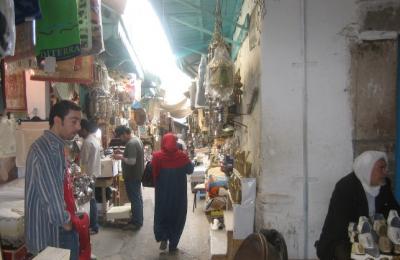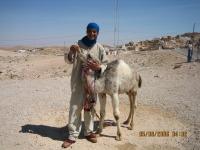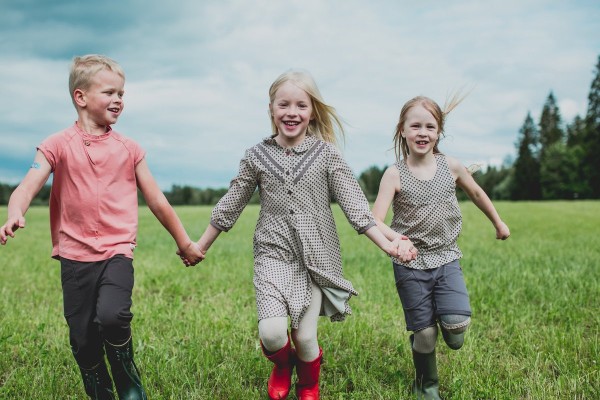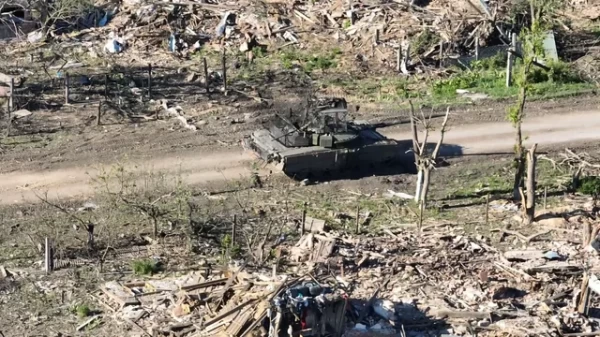Translated by Alliki Arro
And then came fall, 1946. Many of the young people who had completed Grade Four went to a bigger school, at some distance from the camp, among them my friends Juta Roots, Lya Grenz and Njura Malgin. Resolutely, I took the Grade Four exams and joined them. I don’t remember the name of the town any more. Because the school was located about 10 km. away from the camp, the four of us rented a small room. Week-ends we went back to the camp, where we got some food for the following week. But even there my studies did not amount to much. The term had scarcely begun, when we were taken to a village, and instructed to pick stock beets and carrots. We slogged there in the mud dressed in the only clothes we had, until the frosts came. Within a few days the entire field was frozen solid. Not only were the root vegetables still in the ground frozen, but also the ones we had pulled and put in a pile above ground. We still had to break the leaves off the vegetables frozen in the ground, and put them in piles; then the snow came and covered both the work we had done and the work we had not yet done, and we were allowed to go back to school.
They were now allowing young people, who had been deported to Russia as minors, to go back to Estonia. Njura, Juta and Lya were among the first to go. I tried to go to school for a little while longer, but then I had to give up the idea- I could not afford to pay for the room by myself. Eda Puksov from our camp went to that school as well, but she, too, was soon given a permit to go back to Estonia. I decided to go with Eda and leave the school for good. Darkness overtook us en route. We had traversed several valleys and gone through several wooded areas. Now we only had to cross the valley behind our camp. Then, walking across a field to get to the valley, we suddenly saw wolves etched against the trees. They were running in a single file and disappeared into the woods. A wolf pack, when not attacking, will always move in single file, following the footprints of its leader. This way no-one can determine the size of the pack. We froze in our tracks - terrified. Finally we started to move again - we had to get to the camp, and for that we had to go through the woods and the valley. Both of us had all our belongings with us, including pots. Banging the lids against the pots and shouting on top of our voices we set out for camp. I don’t know what Eda was doing, but I kept my eyes on the trail, not looking up or back and shouted as loud as I could...
In 1946, the winter before we left, our family moved to “Posyolok no. 1” In Polom rajon. It was a comparatively large community with two-story log cabins and even a hospital. It was situated in a forest and had been built by Russians who had at one time been labelled “kulaks” and sent into exile from their homes. I don’t remember the details of our move there - I was sick. At first we travelled by horse and cart, then by train and then again by horse and cart. When we finally arrived I could barely move. I was admitted to the hospital, where I spent a month. When I was released, the doctor said’ “you came out of this alive - you have a strong constitution, you’re going to have a long life.” But I don’t know to this day what I had. Mother and Eva came to get me from the hospital with a sled - I was too weak to walk on my own. Once more we were faced with starvation. Mother got some sewing and knitting commissions from the town. Eva started logging. My task was to regain my strength, for Eva and I had also received permission to return to Estonia.
We lived in this town for such a short period, that for me it was a blur, and I did not form a clear impression of the living conditions and people there. But because we had been moved there I had some notion of the infinite Russian forests. Much has been written about them and beautiful songs have been composed about them. The Estonians exiled there were from Saaremaa. The Kaup and the Väli families lived near us.
Eva and I were going to Estonia on our own. I don’t remember the preparations for this journey, and can’t imagine where we got the food to take with us, but we had food - dried bread , boiled and dried potato slices, rye flour, and a piece of bacon fat. The nearest railway station Kirs, was some 50-60 km. away. The road there was only a trail made through the forest by loggers with horses hauling logs in the snow. The forest was terrifying. We were afraid of wolves. The forest was full of them. They came into villages at night, broke through thatched roofs, and attacked goats and sheep. They also moved in packs in the day-time.
We set out around noon on a cold, sunny day. There are moments in life that are etched into your memory as long as you live. This was one of those moments. We are on a white, snow covered plain. The town, on a gentle slope, has receeded into the distance. The smoke from its chimneys rises straight up into the sky. We leave that behind us. Ahead of us lies the forest. Before we get to the forest we have to cross a riverbed, barely noticeable in the blinding light. A dark figure is standing by the bridge on the town side of the river. A solitary figure. It is mother. How long did she remain standing there? Dared she hope to ever see us again?
(To be continued)
Letter to my Father (11)
Järjejutt
TRENDING






















